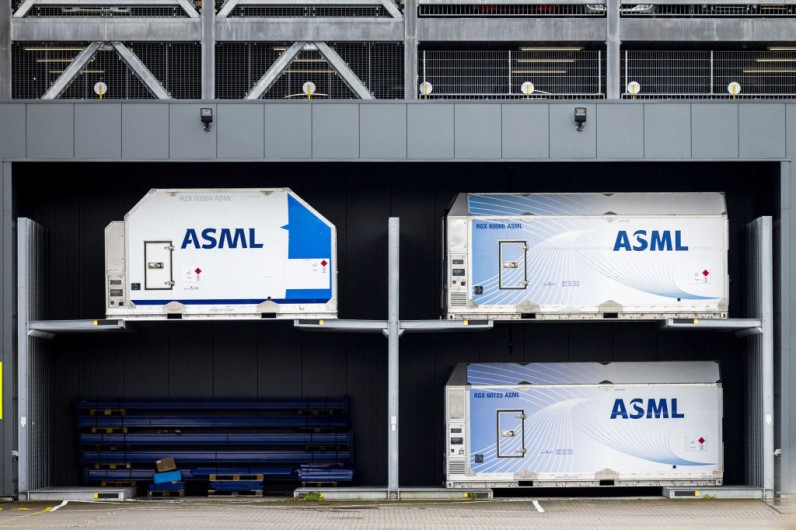
ASML and TSMC, the world's largest chipmakers, may remotely turn down their most modern chipmaking machinery if China invades Taiwan.
According to Bloomberg, this "kill switch" feature is intended to answer mounting worries about the potential consequences of China's annexation of Taiwan, which is critical to the global semiconductor sector.
'Kill Switch' Can Shut Down ASML, TSMC Chip Machines if China Invades Taiwan
ASML and TMC purportedly have the capacity to remotely access and deactivate high-tech chip manufacturing equipment. This disclosure is crucial, particularly given the rising tensions between China and Taiwan.
Taiwan is an important semiconductor manufacturing hub, and any unfriendly action taken by China towards Taiwan might disrupt the semiconductor supply chain, with far-reaching global consequences. ASML and TSMC's "kill switch" technology provides a viable mechanism for countering such attacks and ensuring semiconductor industry stability.
The US administration has reacted to these developments by increasing pressure on the Netherlands to enact regulations that prevent ASML from shipping AI chips to China. Furthermore, ASML has stated that it intends to stop repairing equipment bound for China, hindering China's aspirations to obtain superior semiconductor technology.
These activities highlight the rising relevance of semiconductor technology in geopolitics and the steps being taken to protect its strategic worth.
The revelation of ASML and TSMC's ability to access systems remotely introduces a fresh aspect to the ongoing semiconductor geopolitics.
Despite ongoing tensions, advancements in technology, such as the implementation of a "kill switch," provide promising possibilities for addressing and reducing security risks within the semiconductor industry.
Given the ever-changing geopolitical landscape, it is crucial for stakeholders to carefully navigate these complexities in order to maintain stability and security in the global semiconductor supply chain.
Semiconductor Industry's Role Amid Global Tensions
It is important to highlight the significant role that the semiconductor industry plays in driving modern technology, serving as the foundation for a wide range of devices and systems.
From smartphones to laptops, semiconductors play a crucial role in the operation of a wide range of electronic devices. Disruptions in the semiconductor supply chain can have significant implications for industries and economies on a global scale.
The recent developments highlight the complex relationship between technology, geopolitics, and national security. Amidst the growing importance of semiconductor technology in the global landscape, governments and industry leaders are facing intricate challenges and searching for creative solutions to protect crucial assets and ensure stability in the semiconductor ecosystem.
Ultimately, the semiconductor industry is now facing the challenge of navigating through geopolitical tensions, as recent events underscore the need to protect advanced technologies from potential risks.
The revelation of ASML and TSMC's remote access capability provides insight into the changing dynamics of semiconductor geopolitics and highlights the importance of taking proactive steps to mitigate security risks in the semiconductor supply chain.
To maintain the stability and security of the global semiconductor ecosystem, collaboration and innovation will play a crucial role as stakeholders navigate these challenges.







Join the Conversation